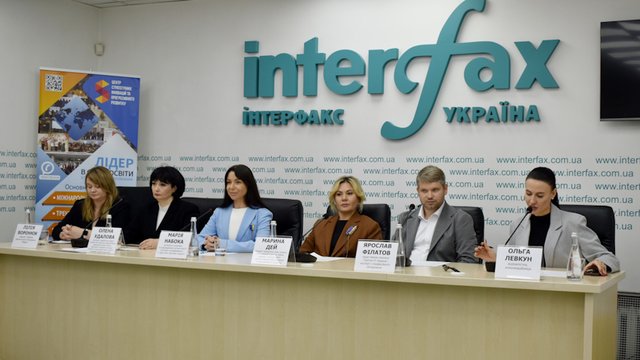Implementation of HACCP system in educational institutions is matter of child safety, not formality, according to experts

Experts in education, law, and food safety emphasize that compliance with HACCP standards in schools and kindergartens is mandatory and directly affects children's health. Marina Day, PhD in Law, Associate Professor, CEO of E-Science Space, and Advisor to the Center for Strategic Innovation and Progressive Development, emphasized that the legal requirements for implementing the HACCP system are enshrined in a number of legislative acts.
“The professional development of educational institution administrators and the implementation of the HACCP system is not a right, but an obligation under the law. Every school principal is, in fact, a food market operator and bears personal responsibility for the safety of children,” she stressed at a press conference at the Interfax-Ukraine agency.
The expert also noted that, according to Article 325 of the Criminal Code of Ukraine, violations of sanitary standards can have serious consequences, including criminal liability for educational institution administrators.
“Judicial practice shows that even the absence of properly completed HACCP logs or internal control reports can be grounds for fines and disciplinary measures,” Day noted.

In turn, HACCP implementation expert Maria Naboka pointed out that effective implementation of the system is impossible without a diagnostic audit.
“You should start not with paperwork, but with an analysis of the actual state of the educational institution. Only after an audit can you understand what risks exist and what changes need to be made,” she said.
According to the expert, one of the main problems remains the insufficient training of personnel.
“Training is a discipline. Without understanding the HACCP system, even the best equipment will not ensure food safety,” added Maria Naboka.
Lilia Voronyuk, head of the Rayvon law firm, emphasized that the responsibility for violating food safety requirements for educational institution managers is real and multi-level.

"If a child at school or kindergarten is poisoned, this can have not only administrative but also criminal consequences. Today, every head of an educational institution must realize that the HACCP system is not just a set of papers, but a legal mechanism that protects both them and the children," she said at a press conference at the Interfax-Ukraine agency.
According to Voronyuk, the HACCP system not only helps prevent food poisoning but also minimizes the risk of fines and reputational damage.
“When an educational institution properly implements the system, it effectively creates a protective shield for itself: everything is documented, all risks are monitored, and all processes are under control. This not only allows them to avoid sanctions but also increases parents' trust,” she added.
According to her, in 2022–2024 alone, more than 900 legal entities received fines for violating HACCP requirements totaling more than UAH 30 million, and during this period, 190 court decisions were issued for non-compliance with food safety legislation.
Yaroslav Filatov, a representative of Protech IT Ukraine, emphasized the importance of technical modernization of school kitchens.
"Today, only a small number of schools have modern professional equipment that meets HACCP requirements. Many of the upgrades began thanks to the initiative of Ukraine's first lady, but after the start of full-scale war, the pace slowed significantly," he said.
Filatov advised school administrators to conduct regular equipment audits in order to use budget funds rationally and avoid unnecessary purchases.
Lilia Voronyuk, head of the Rayvon law firm, reminded that administrative, civil, and even criminal penalties may apply not only to suppliers but also to educational institutions that have not implemented the HACCP system.
“Today, responsibility is not just a legal term, but a reality that protects the lives and health of children,” she stressed.
In turn, Olena Udalova, candidate of pedagogical sciences and research fellow at the Institute for Modernization of Education Content of the Ministry of Education and Science of Ukraine, presented a joint educational program for the professional development of teachers, “HACCP System in Educational Institutions.”
“We have created a training program that teaches not only theory but also practice—document development, case studies, and situation modeling. The main goal is to foster a culture of food safety in educational institutions,” she said.
Participants in the press conference also presented the Food Advocacy initiative, a platform that brings together lawyers, technologists, and auditors to help educational institutions and businesses implement the HACCP system (https://edu.centresipd.com/free-online-haccp-school).
“Safe food is not a choice, but a duty. And we are the ones who stand up for it,” the initiative's presentation says.
The HACCP (Hazard Analysis and Critical Control Point) system is an internationally recognized risk management methodology aimed at ensuring food safety. According to Ukrainian law, all educational institutions that have food service facilities or work with food suppliers are required to implement the HACCP system.
